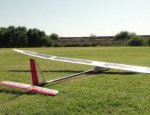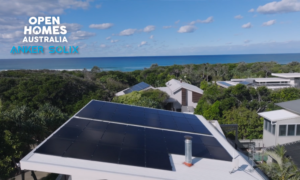Electrical engineering students at Arizona State University are looking at ways of making solar-powered aircraft a more viable flight technology.
Solar powered flight has already come quite a long way in recent years. For example, the Solar Impulse has already completed a number of record breaking flights and various solar powered drone aircraft are at various stages of development. Boeing’s SolarEagle unmanned surveillance aircraft will be able to fly non-stop missions for up to five years without ever needing to land.
It’s a fledgling sector, with much research and development needed to make solar powered flight more economically viable.
Two teams of Arizona State University students are building small-scale prototypes of remote-controlled airplanes powered by solar-cell technology and working on extending the flight times by mounting more solar cells on the planes to boost power – but without weighing down the aircraft with heavy batteries that would impact on flight performance.
According to Yong-Hang Zhang, an electrical engineering professor overseeing the project, the students have achieved “truly amazing things” already, with designs that exceeded the professor’s expectations. Boeing Spectrolab was so impressed with the designs, the company donated over 300 high-efficiency solar cells for use in the projects.
One of the aims of the project is help accelerate solar-powered aircraft toward commercialisation and to increases the potential for such planes to assist in many public services. Aside from military applications, solar powered, autonomous aircraft could be of benefit to law enforcement and emergency-response situations, along with potential for improved environmental monitoring.
The two teams currently participating will pass their accumulated knowledge and skills to next year’s teams to give them a head-start on exploring additional technological advances; and aim to broaden the range of expertise on future teams by recruiting aerospace engineering students.
Video of some of the students’ efforts in the Small-Scale Autonomous Solar UAV design project can be viewed here.














































